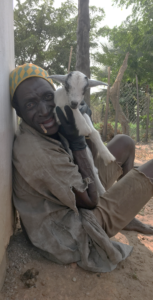
We have an update on the Gambia Goat Dairy (GGD) project from Carla Chieffo of the PMB Rotary Club, who initiated the GGD and is a graduate of The University of Pennsylvania School of Veterinary Medicine. The 2 veterinary students, Brianna Parsons and Corey Spies, that co-direct the GGD, graduated from veterinary school several years ago, and continue to lead the project while launching their own careers. Brianna, who completed a Masters and a Residency, will be hired as a Lecturer in Sustainable Agriculture at The University of Pennsylvania School of Veterinary Medicine starting in July. Part of her time will be spent conducting international research and teaching, with GGD as one of her projects. Penn Vet continued their financial support of GGD this year, after contributing to seed funding in 2017 and 2018. Corey, after graduating, worked in private veterinary practice for a year. He currently is enrolled in the MBA program at The Wharton School at the University of Pennsylvania, and continues to consult for GGD. With their guidance, the dairy is on its way to self-sustainability.
Despite the COVID-19 pandemic, the goat herd flourished and now totals 29 goats with 14 new goats born in 2020. The farm investigated options for diversification in revenue streams. Poultry production and goat meat production are being explored as ways to increase revenue and increase local autonomy of the operation. Three years of goat milk production data are currently being analyzed to help guide plans for commercial sales and financial sustainability.
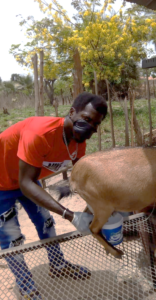
In 2019, a nutritional survey was conducted to assess the nutritional status, as measured by stunting, wasting, and underweight, in the Gambian village community of Sanyang. Over 700 women were interviewed during this study. This data will be used as a baseline, to determine the impact of increasing animal-source food availability to women and children within this same community.
Groundnuts (peanuts) were grown this year through a business partnership with a Gambian peanut producer. GGD purchased seed inputs in exchange for production of peanut hay. In doing so, the groundnut plants were grown, the peanuts were separated from the leafy plant residues, and the residues were dried and made into hay. The Gambian producer was then able to sell the peanuts to generate income, while the hay was used by GGD to feed the goats during the dry season. This agreement helped GGD acquire critical feeds at a lower cost than purchasing hay on the market, thereby increasing financial stability of the operation.
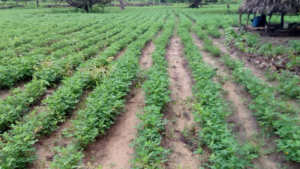
Two of the major objectives of GGD are teaching and research. Students from across the University of Pennsylvania have participated in on-site and remote internships. A formal year-long internship program is planned for the future. Possible student exchange programs to facilitate cross-cultural learning for both Gambian and American students are being explored through partnership with the University of Pennsylvania. GGD also plans the creation of a formal Gambian agricultural extension service, to share knowledge of agricultural best practices across farmers, women and youth of The Gambia.
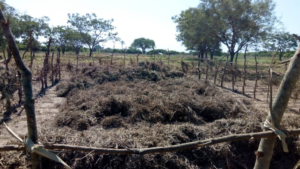
The GGD raised over $4,500 though Rotary clubs (PMB donated $1000) and private donors during COVID. This money was used to pay salaries, purchase feed and other essential items needed to keep the farm operational.
Recently, Carla was contacted by two different grade schools that wanted to raise money to purchase a goat. Each school raised $250, which is the cost of a goat and feed for 1 year.
Ashely Randolph, a 2nd grade teacher in Burnsville, NC, wrote; “Our 2nd grade class was inspired by
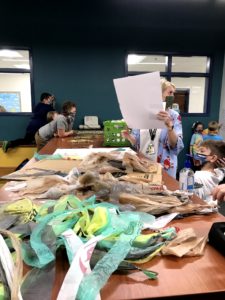
the book One Plastic Bag by Miranda Paul. In the book, a group of African ladies from The Gambia create purses out of plastic bags to help their environment look and be better. They are able to sell the purses at the market in order to buy goats for their family. We then started collecting plastic bags and creating items to sell at our school store in order to buy a “Goat for Gambia”. The students made bracelets, zipper pulls, necklaces, lanyards, and mask lanyards. We also created a commercial to share with our school! We raised $250.00!!! Thank you for making this exciting moment happen for us!!!”
Thanks to all the clubs and individual donors that have helped make GGD successful.